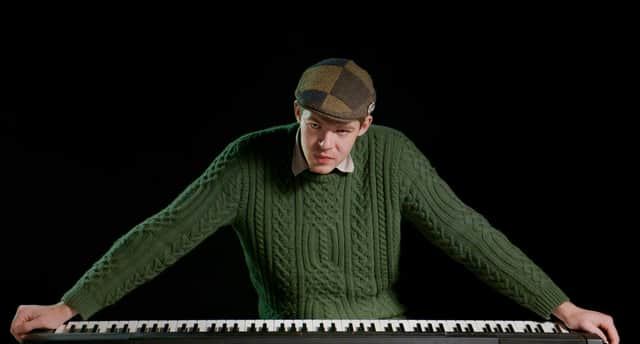Films can show us different ways of being - Rob Holland


The fact Sean is autistic is not rammed down the audience’s throat like some documentaries with stats, charity reps, clinicians and the like detailing the latest thinking – instead the mic is handed to Sean to poetically reflect on his autism and the dynamic it plays with his music and performance. Balancing his boundless energy and creative tangents with the reality of collaboration is challenging, but it makes for a unique performance and a grippingly entertaining film.
With 56,000 autistic people in Scotland, there are an abundance of interesting and fascinating stories. Not all of course are incredible musicians, and we must be careful that the full range of experiences are reflected. Autism by definition is a spectrum of hugely varied life experiences and film and the media must be careful to reflect that. This is difficult of course given that some people have profound needs, and may even be non-verbal.
Advertisement
Hide AdAdvertisement
Hide AdBut that challenge was met head-on through the acclaimed 2020 film The Reason I Jump. Based on the book by Naoki Higashida, it contains intimate portraits of five remarkable young people. It opens a window into an intense and overwhelming, but often joyful, sensory universe. Through narration and visuals, it helps the audience understand why the autistic protagonists do certain things, or the reason they jump.


The news agenda quite understandably perhaps focuses on the challenges and difficulties people face – systems, healthcare, educational support and the like, but we must balance this with the achievements and contributions that autistic people make.
Films like Harmonic Spectrum and The Reason I Jump subtly introduce the audience to different ways of being and contributing. If we are to move beyond awareness of autism (the majority of Scots have heard the word) we need to deepen understanding and these films can play an important role in this regard.
Another powerful piece of media that aired recently was the BBC documentary Our Family and Autism. Told from the perspective of TV presenter Paddy McGuinness and his wife Christine, it did well to highlight the joys of having an autistic child, but also the mindset shift they had to go through, and how challenging that was for them.
Paddy describes quite openly about the fact he had no idea what autism was, and his difficulties in accepting that his children had been diagnosed with it. Again, that speaks to the importance of deepening understanding of autism among society as a whole. Later on, it is revealed that Christine herself has been recently diagnosed with autism. This is something which we commonly hear and it highlights the increasing number of adults seeking a diagnosis later in life, often because of their children.
The documentary has hopefully demonstrated to the public that autistic people should be valued and loved, not feared. As Christine McGuinness says in the film, “I don’t think my children need fixing, I think they’re amazing as they are.”
It feels that there is an increasing presence of autistic people and their families in the media landscape, and that more platforms are there for people to tell their story. It’s the only way we will move beyond awareness and into understanding and acceptance. That is something we as a charity will continue to support, and try our very hardest to promote.
Rob Holland – Acting Director, National Autistic Society Scotland
Comments
Want to join the conversation? Please or to comment on this article.